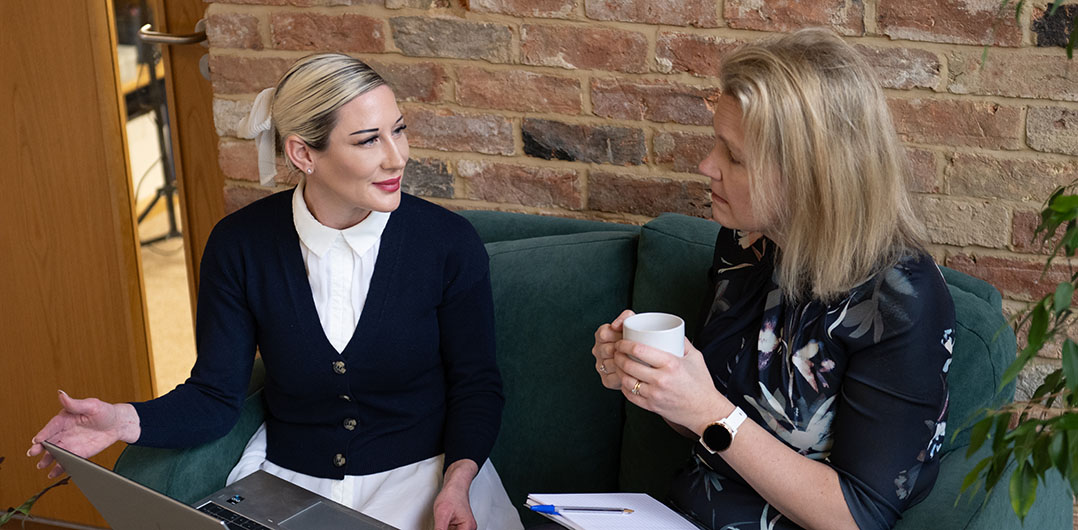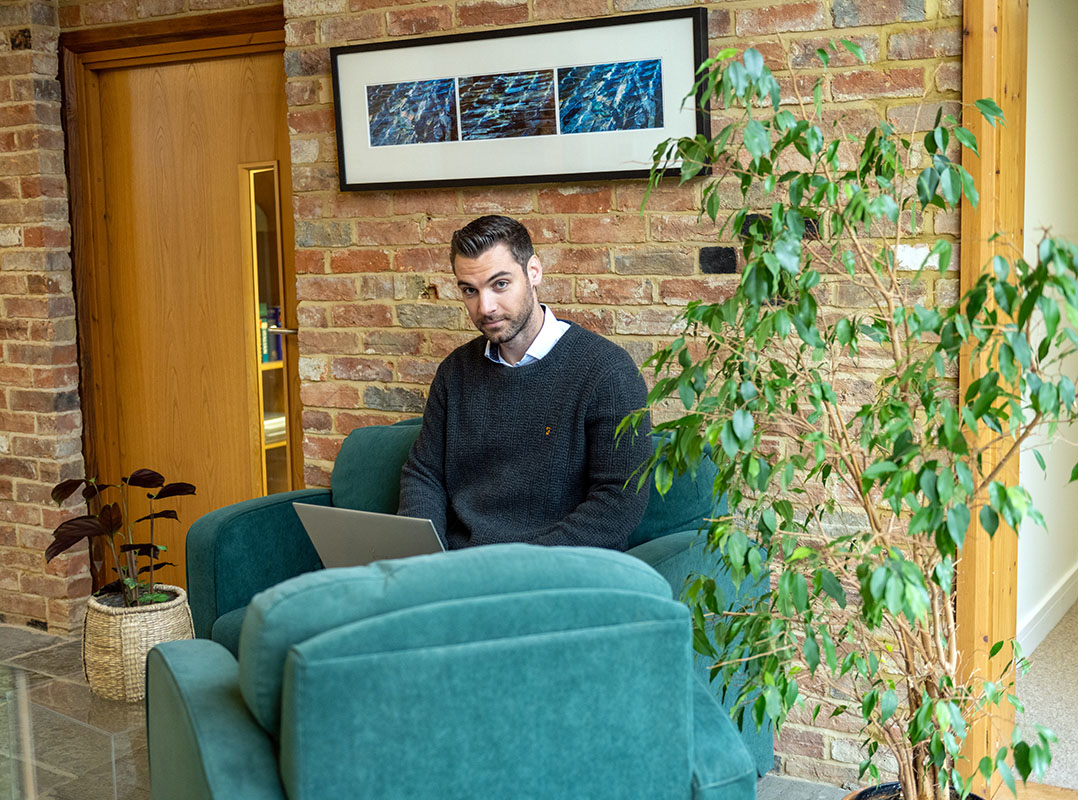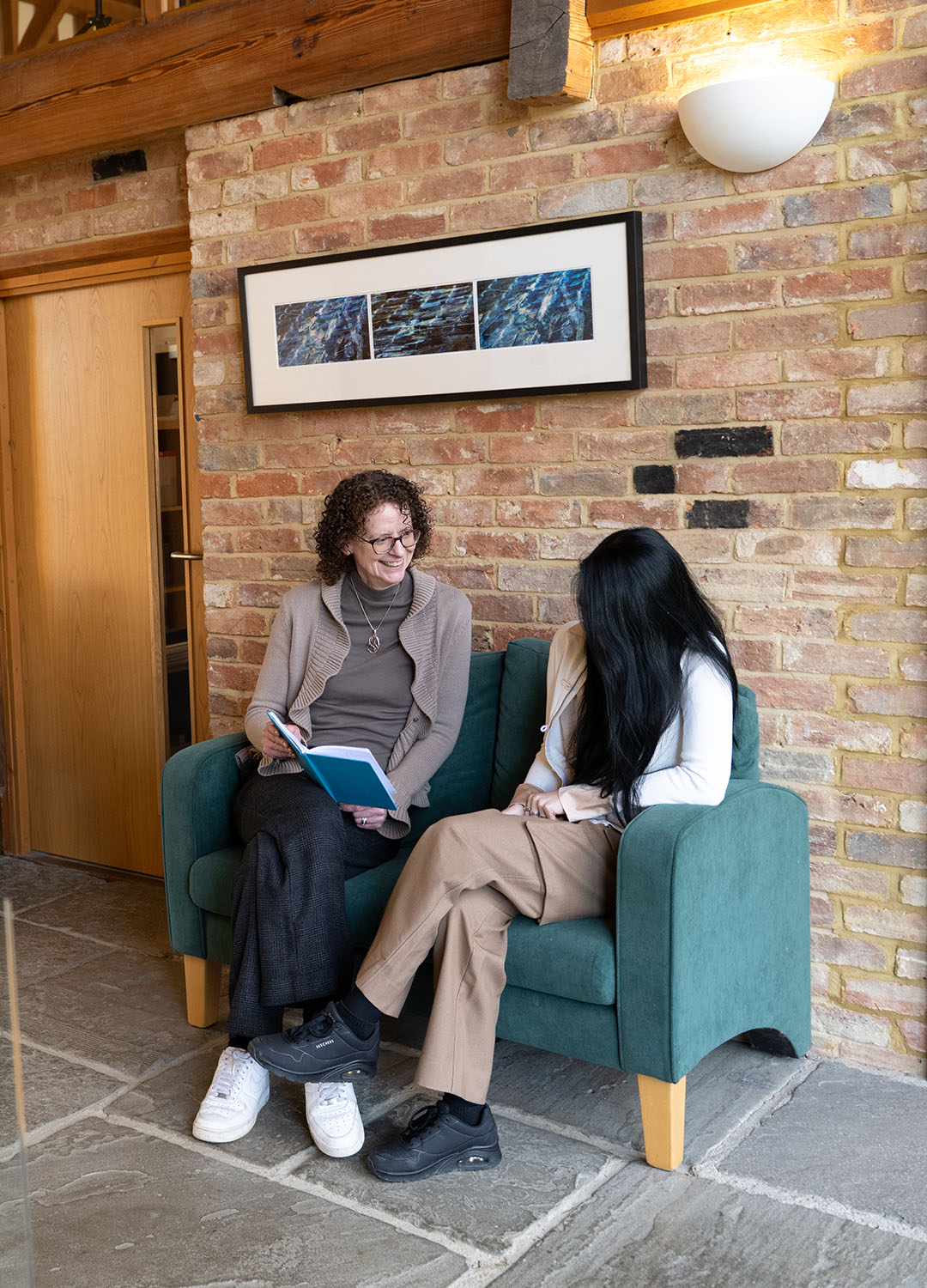Copyright

Copyright: Secure Your Creative and Commercial Rights
When you create something original – whether it’s a business process, article, video, or line of code – the law protects it from the moment it’s recorded. But while this automatic protection exists, many businesses underestimate the importance of clearly defined rights and a proactive strategy. Without it, you risk ownership disputes, lost revenue, and limited commercial options.
That’s where our copyright attorneys step in. At Stratagem, we help you understand and safeguard your creative and digital works by clarifying ownership, advising on licensing structures, and aligning protection with your commercial goals. With our expert guidance, your intellectual assets remain secure, enforceable, and strategically positioned to support business growth.
What Is Copyright, What Does the Law Protect and Why Does It Matter?
Original content – from written text and artwork to music, software, and video – is automatically protected the moment it’s fixed in a tangible form. This legal safeguard gives creators control over how their work is used, shared, and commercialised. But despite being automatic, the rules around ownership and usage can be anything but simple.
One project can involve multiple overlapping rights held by different people. Take a stage production, for instance – the writer may control the script, a publisher might own the visual layout, and artists could retain rights over illustrations or cover art. If the play is recorded, performers gain performance rights, and the producer or director may own the recording. Add a television broadcast or musical score, and things quickly get more complicated.
For businesses, understanding and managing these rights is essential. Most marketing materials – from blog posts to brand videos – incorporate creative elements that fall under this protection. Knowing what you can legally use, ensuring you have the correct permissions, and asserting your own rights requires careful, expert-led guidance.
What is Your Industry?
Copyright Infringement, Protecting Your Business from Infringement Risks
There’s no such thing as truly “rights-free” content. Either the original creator has chosen not to enforce their rights – which could change at any time — or the use falls outside the legal definition of infringement. In many cases, the grey area is wider than expected.
Using creative content without proper permissions can expose your business to legal disputes, financial penalties, and reputational harm. Even minor oversights – an image on a blog or a reused video clip – can lead to costly consequences.
That’s why legal clarity matters. Stratagem helps businesses secure clear ownership of original work, properly licence third-party material, and stay compliant with evolving legal standards. Our expert-led advice cuts through the uncertainty – giving you the confidence to use and protect content strategically and lawfully.

Why Is Copyright Important?
For many businesses, the automatic protection of creative output is one of the few tools available to safeguard value. Whether you’re producing content, designing marketing materials, or developing software, these assets can still be protected – even when patents or registered design rights aren’t applicable.
If your business can demonstrate authorship, originality, and date of creation, you may be able to enforce rights even after publication. This retrospective power is especially useful in industries where innovation moves faster than formal registrations.
Because most countries don’t require formal registration for this type of IP, it remains one of the most accessible and cost-effective forms of protection – particularly for startups, SMEs, and creators operating with lean budgets. But the value doesn’t stop there.
Larger corporations often overlook these protections despite their critical role in securing digital content, marketing campaigns, internal documentation, and other proprietary materials that define brand identity.
Strategic use of automatic IP rights can help businesses protect, enforce, and commercialise their creative output. Stratagem provides tailored legal advice to help organisations identify where value lies and how to maximise its potential.
Let’s Tailor Your IP Advice to Your Business Type
How to Protect & Manage Copyright in Your Business
Creative content is woven into every part of your organisation – from product design and digital media to internal documentation and marketing. But who owns this work? Is it properly protected? And how can you minimise legal and financial risks?
Unlike patents or trade marks, many creative works gain protection automatically – without registration. But that doesn’t mean enforcement is simple. Without robust documentation, ownership disputes and unauthorised use can arise, leaving businesses vulnerable.
To safeguard your position, it’s essential to take a structured approach. That includes maintaining clear records of creation and ownership, assigning rights in contracts where necessary, and proactively managing how your creative assets are used internally and externally.
Stratagem helps businesses take control of their content – clarifying ownership, reducing exposure to risk, and ensuring creative output remains a valuable and enforceable part of your intellectual property portfolio.
Key Steps to Strengthen Copyright Protection
Establish Ownership with Clear Documentation
Every creative asset should have a verified record of authorship, originality, and creation date. Documenting this information strengthens legal protection and makes it easier to enforce rights if challenges arise. Digital files often store metadata, but without organised systems, this valuable evidence can be lost or overlooked.
Uncover Hidden IP Risks Across the Business
Train Teams for Compliance and Confidence
Align Creative Rights with Commercial Goals
Legal protection should serve a purpose beyond compliance. Businesses that actively manage their content – through licensing, strategic use, or enforcement – can unlock new revenue streams, reduce disputes, and protect their competitive edge in the market.

Expert Support for Copyright Strategy
Without formal registration, protection of creative work relies on your ability to prove ownership and act decisively when rights are challenged. That’s why having a clear, proactive strategy is critical. Stratagem’s legal experts help businesses reduce risk, establish ownership, and turn creative output into commercial advantage.
Whether you’re safeguarding original content, structuring licensing agreements, or building best-practice processes for documentation, we help transform your creative assets from potential liabilities into valuable business tools that support long-term growth.
Why Choose Stratagem?
Protecting your creative work is about more than legal compliance – it’s about applying the law in ways that strengthen your business, reduce risk, and support growth. A practical, commercially driven strategy ensures your original content is secure, valuable, and aligned with your wider goals.
At Stratagem, we don’t stop at interpreting law. We dig deeper – asking the right questions, uncovering unseen vulnerabilities, and building proactive plans that help your business stay protected and ahead of the curve.
As digital enforcement tools grow more sophisticated, businesses are increasingly caught out by automated claims. Scanning bots now trawl websites for unlicensed content and issue instant payment demands – often without context or accuracy. These aggressive tactics can create confusion, stress, and unnecessary cost.
If you receive a demand related to creative work, it’s important to respond strategically. Paying without legal assessment may be premature, while ignoring the issue can escalate the risk. Stratagem’s experienced team provides fast, clear, and commercially sound guidance – helping you make the right call at the right time.
From managing disputes and delivering tailored team training to designing enforceable strategies, we help you move from reactive defence to proactive protection. With Stratagem on your side, your creative output becomes not just protected – but commercially empowered.
What Our Clients Say
FAQs for Copyright Protection
How do you register a copyright in the UK?
In the UK, creative works – such as written content, images, music, or software – are protected automatically the moment they’re recorded in a tangible format. Unlike patents or trade marks, there’s no official registry, so you don’t need to apply for legal recognition.
However, proving ownership is key if you ever need to enforce your rights. Keeping detailed records – including drafts, timestamps, and metadata – helps establish when the work was created and by whom. For businesses, a structured approach to documentation and internal policies is essential.
If you plan to license content commercially or anticipate possible disputes, expert legal advice ensures your protection strategy is robust and commercially aligned.
How long does copyright protection last?
In most cases, protection lasts for the lifetime of the identified creator plus 70 years. This term is calculated from the end of the year in which the creator dies, meaning their work remains safeguarded well into the future – even long after their passing.
For works created by a company or where the creator isn’t named (such as anonymous or collective works), the duration may differ – typically lasting 70 years from the date of publication. Because timeframes can vary, it’s important to assess each situation carefully to ensure the right protections remain in place.
Who owns the copyright to a creative work?
Ownership typically belongs to the person who creates the content. However, when that individual is an employee, rights usually transfer to the employer – provided the work was produced within the scope of their job. For instance, if an employee writes a LinkedIn article in their professional capacity, the company is likely the legal owner. In contrast, a novel written outside of work, in personal time, would belong to the individual.
For freelancers, contractors, or agencies, default ownership stays with the creator unless there’s a written agreement that assigns the rights. Paying for the work alone doesn’t transfer ownership – a formal, signed contract is essential to secure full legal control.
To avoid disputes and ensure your business retains the right protections, it’s best to get expert legal advice, especially when outsourcing creative projects or using external contributors.
What if you don’t know who owns the rights to a creative work?
If you want to use creative content but can’t identify the rights holder, the law requires you to carry out reasonable due diligence to find them. Just because an image or article appears online without a © symbol doesn’t mean it’s free to use – legal protection still applies automatically.
Before using the work, you must make genuine efforts to trace the creator and request permission or a licence. If the owner can’t be found, you may proceed cautiously – but if they come forward later, you could be liable to pay backdated fees going back up to six years. Keeping a detailed record of your research efforts is essential to show that you acted responsibly and within legal boundaries.
Can single words or short phrases be protected by intellectual property law?
Generally, individual words or very short phrases don’t qualify for protection under copyright, as the law typically requires a certain level of originality and creative expression. Protection applies to more substantial works like books, songs, visual art, or software. However, if a word or phrase is uniquely tied to a brand, trade mark registration may offer a more appropriate route for safeguarding commercial identity.
That said, there’s no definitive rule on how short a protected excerpt can be. If a brief quote provides clear commercial gain or is copied in a way that misrepresents ownership, it may still pose legal risk. When in doubt – especially when quoting someone else – seek permission and credit the source to avoid potential disputes.
What is copyright infringement?
Copyright infringement occurs when a protected creative work is used, copied, or distributed without permission from the rightful owner. This includes unauthorised reproduction, modification, or public sharing of materials such as images, videos, music, or written content. Simply finding content online does not make it free to use – protection applies automatically, even without a visible © symbol.
Common scenarios include using unlicensed images on a website, copying written material without consent, or republishing modified content without the creator’s approval. These actions can lead to legal claims, takedown requests, financial penalties, or reputational damage.
To stay protected, businesses and individuals should always verify usage rights, secure the appropriate permissions or licences, and document content ownership. If you receive a claim, don’t ignore it – expert legal advice can help you assess the situation and avoid unnecessary costs or escalation.
Who owns the copyright in AI-generated content?
Ownership of content created with artificial intelligence (AI) is a developing area of law, but under current UK rules, copyright in AI generated content belongs to the individual who provided the input or prompts to the AI system – not the AI itself.
When content is created as part of an employee’s duties, those rights typically transfer to the employer. However, if the work is produced outside of employment, the individual retains ownership. While the legal landscape may evolve, these principles currently guide how AI-assisted works are treated in terms of legal control and usage rights.
Who owns the copyright to a logo designed by an agency?
When a design agency creates a logo, ownership of the creative rights usually stays with the agency – unless a formal agreement transfers those rights to the client. Simply paying for the work doesn’t guarantee full control; it often provides only a limited licence to use the design as agreed.
To secure complete ownership, a signed copyright assignment agreement is essential. For businesses working with freelancers, contractors, or agencies, putting the right contracts in place helps prevent disputes over intellectual property. Even in employer-employee relationships, including clear clauses around copyright ownership ensures that brand assets belong to the business, not the individual who created them.
What’s the difference between copyright, trade marks, patents, designs, and creative rights?
Intellectual property (IP) includes several types of protection, each designed for specific assets. Creative rights – often referred to as authorship rights – apply automatically to original works such as books, music, digital content, and visual media. These rights allow the creator to control how the work is used, shared, or reproduced.
Trade marks safeguard brand elements like names, logos, and slogans that identify your business in the marketplace. Registering a trade mark gives you exclusive rights and helps prevent others from using similar branding.
Design rights protect the visual appearance of a product – including shape, patterns, configuration, and even colour combinations. These can be protected through registration or automatically as unregistered rights, depending on the circumstances and market strategy.
Patents cover inventions and innovative technologies, giving inventors exclusive commercial rights for up to 20 years. Unlike other IP types, patents must be applied for before making the innovation public, as novelty is a key requirement.
Choosing the right type of protection depends on the nature of your innovation or asset. Expert advice ensures your intellectual property is protected and aligned with your commercial goals.
Are copyright attorneys the same as copyright lawyers or copyright solicitors in the UK?
In short – yes, though terminology can sometimes be confusing. In the UK, the term “lawyer” covers anyone qualified and regulated to provide legal services, including solicitors and patent or trade mark attorneys. Each has a different qualification route, but they all sit alongside each other under the Legal Services Act.
There’s no specific qualification for a “copyright solicitor” or “copyright attorney” — these terms simply describe legal professionals who specialise in creative and intellectual property rights as part of their broader practice.
At Stratagem, we use the title “attorney” to reflect our cross-disciplinary expertise in creative rights, patents, and trade marks. More importantly, it signals that you’re working with a professional who understands the legal, commercial, and strategic dimensions of protecting your business assets.
Whether you refer to us as attorneys, solicitors, or lawyers, what matters is that you receive expert guidance tailored to your goals – delivered with clarity, experience, and commercial insight.

Understanding Your Rights in Your Creative Work
Copyright is one of the simplest and most powerful ways to protect original content, but it only works when you can prove ownership, manage permissions, and act decisively. Whether you’re safeguarding design work, digital media, or internal documentation, we’ll help you safeguard your rights.
Book your free consultation today and get practical, expert advice tailored to your business.Call us on +44 (0)1223 550740 or complete the form to setup your free consultation.
